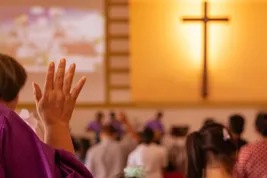ABS-CBN Official Website | Leading Entertainment and News Network | ABS-CBN
ADVERTISEMENT

Welcome, Kapamilya! We use cookies to improve your browsing experience. Continuing to use this site means you agree to our use of cookies. Tell me more!
LIVE UPDATES
LIVE UPDATES
World
Pope Francis, beloved ‘Lolo Kiko’ to Filipinos, has passed away: Vatican
Pope Francis, beloved ‘Lolo Kiko’ to Filipinos, has passed away: Vatican
Pope Francis, known and loved by Filipinos as "Lolo Kiko," has passed away, the Vatican said Monday.
Editors' Picks
Editors' Picks
ADVERTISEMENT
Latest Videos
Latest Videos
ADVERTISEMENT
Latest News
Latest News
ADVERTISEMENT
ADVERTISEMENT
ADVERTISEMENT















































